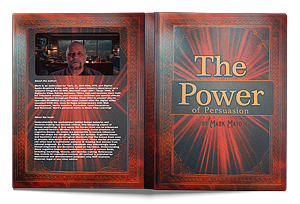A content marketing brief is a vital document that outlines the goals, objectives, target audience, messaging, and other essential elements of a content marketing campaign. It serves as a blueprint for content creators and marketing teams, ensuring everyone is on the same page and working towards a unified vision. This article will delve into the components of a content marketing brief and discuss its importance in executing successful content marketing campaigns.
Components of a Content Marketing Brief
A comprehensive content marketing brief should include the following elements:
1. Campaign Objectives
- Clearly define the goals and objectives of the content marketing campaign.
- Increase brand awareness
- Generate leads
- Drive website traffic
- Boost sales or conversions
2. Target Audience
- Identify the target audience for the campaign.
- Demographics (age, gender, location, etc.)
- Psychographics (interests, preferences, values, etc.)
- Buyer personas (profiles of ideal customers)
3. Key Messaging
- Outline the primary messages to be conveyed through the content.
- Unique selling proposition (USP)
- Benefits and features
- Emotional hooks
4. Content Formats and Channels
- Specify the types of content and platforms to be utilized.
- Blog posts
- Social media updates
- Infographics
- Videos
- Email marketing
5. Keywords and SEO
- Include relevant keywords and search engine optimization (SEO) strategies.
- Primary and secondary keywords
- Long-tail keywords
- On-page and off-page SEO tactics
6. Editorial Calendar
- Develop a timeline for content creation and publication.
- Content deadlines
- Publishing dates
- Distribution plan
7. Performance Metrics and KPIs
- Establish metrics to measure the success of the campaign.
- Website traffic
- Social media engagement
- Conversion rates
- Return on investment (ROI)
The Importance of a Content Marketing Brief
A well-structured content marketing brief is crucial for several reasons:
1. Alignment and Collaboration
- Ensures all team members have a clear understanding of the campaign objectives and can work together effectively.
2. Consistency
- Promotes consistent messaging and branding across all content formats and channels.
3. Efficiency
- Streamlines the content creation process, reducing the potential for miscommunication and wasted time or resources.
4. Measurement and Analysis
- Establishes performance metrics and KPIs that allow for the evaluation of the campaign’s success and identification of areas for improvement.
Final Thoughts
A content marketing brief is an indispensable tool for content creators and marketing teams alike. By outlining the objectives, target audience, messaging, content formats, and performance metrics, a content marketing brief ensures that all stakeholders are working in harmony to achieve the desired outcomes of the campaign. Investing time and effort in crafting a comprehensive content marketing brief can significantly improve the efficiency and success of content marketing efforts.










